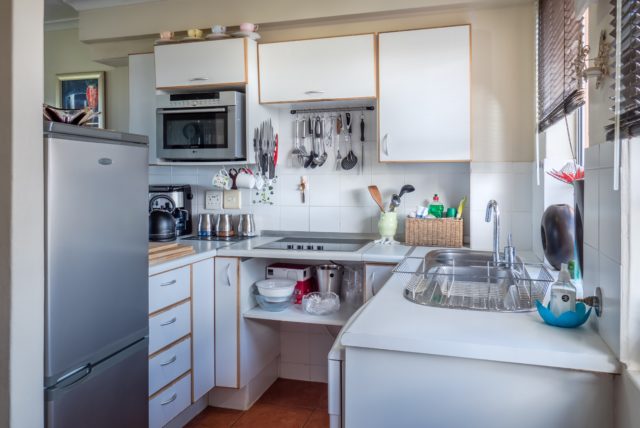Your home appliances are designed to provide convenience and ensure your comfort. Without them, daily tasks can be more time-consuming or even more difficult. Therefore, taking care of your appliances is a must if you want to continuously enjoy their benefits.
Proper maintenance also extends the lifespan of your appliances and keeps them in good operating condition. This saves you money on repair and replacement costs; you’ll also enjoy a faster and bigger return on investment. Finally, taking care of your home appliances ensures that you can get the full warranty coverage.
In short, you have nothing to lose and everything to gain when you take care of your household appliances. If you need a bit of help, here are some helpful tips:

General Maintenance Tips
Read the Manufacturer’s Instructions
Your appliances come with an owner’s manual for a reason: for you to learn how to use them properly. Aside from usage instructions, the manual also often contains a list of essential parts of the appliance. You can also find details for basic care and maintenance.
Remember that different manufacturers have different recommendations for appliance usage. As such, don’t assume that you know how to operate and maintain an appliance just because you’ve used a similar one before.
For future reference, you should keep the instruction manual in a convenient place. There are also some manufacturers that provide digital copies of the manual through their website, depending on the type of appliance.
Keep Them Clean
Every appliance needs to be cleaned regularly if you want them to run efficiently and stay in good shape for longer. Make sure to clean every nook and cranny for the best results. For example, you might be cleaning the inside of your refrigerator every month but forget to clean the gaskets. When the gaskets aren’t in good shape, they won’t be able to maintain a good seal around the doors. This means that the cold air can “escape,” which ultimately results in a higher electricity bill.
Taking Care of Your Refrigerator
To properly take care of your refrigerator, follow the temperature recommendations. This prevents the compressor from getting overworked. Ideally, you should maintain about 1 to 4°C inside to ensure the freshness of the food. If you want, you can get a thermometer to ensure the right conditions inside the fridge.
It’s also advisable to keep a few items inside the freezer to help the cold air circulate better. If you don’t have anything frozen to store, consider placing even just a couple of ice cube trays inside. You should also allow food to cool down to room temperature before placing them inside the fridge.
Lastly, don’t forget to inspect the condenser coils and clean them from time to time. Clean condenser coils prevent overheating and ensure efficient cooling.
Taking Care of Your Air Conditioner
To make sure your air conditioner stays efficient, you need to clean or replace its filters regularly. A dirty, clogged filter obstructs air flow, which means the space won’t be cooled down properly. What’s worse, a dirty air filter can carry dirt into the evaporator coil. This can affect its ability to absorb heat, resulting in higher energy consumption.
Of course, you should also clean the coils when needed. Moreover, make sure that the area surrounding the external unit or the back of the aircon doesn’t have any obstructions. Finally, for window-type units, make it a habit to inspect the seal between the window/wall and the unit. If the seal is damaged, repair it so you can keep the cool air in.
Taking Care of Your Washing Machine
To keep your washing machine running efficiently for years to come, make sure rinse it thoroughly after use. This removes traces of detergent and fabric conditioner which, if allowed to accumulate, can form a sticky or powdery residue. This can then stain or damage your clothes. After rinsing, make sure to dry the drum. Every week, wipe it with a cloth dampened with a little bleach for a more thorough clean.
You should also check the lint filter of your washing machine and clean it regularly. In addition, make sure to inspect the hoses if there are any leaks (and repair or replace them when necessary). Lastly, place your washing machine on a flat, even surface. This prevents excessive vibration that can damage the internal components.
Taking Care of Your TV
The best thing you can do to take care of your TV is to not just turn it off but also unplug it when not in use. This not only saves electricity, but also reduces the risk of damage in case of power surges. Speaking of power surges, it’s ideal to get a voltage regulator to reduce or eliminate the negative effects of voltage fluctuations when the TV is in use.
In terms of location, make sure that the TV isn’t placed in a room with high humidity to prevent corrosion of the internal components. Lastly, make sure to wipe the screen with a soft cloth to prevent scratches and remove dirt, fingerprint marks, and smudges.
Taking Care of Your Microwave Oven
As soon as the microwave oven is cool, clean the insides using a soft damp cloth to remove spills and food stains. Doing this promptly will prevent any permanent staining or crusting. You should also clean the door, including the edges, so that it closes properly. This ensures everything is heated up evenly inside the oven.
You should also take care to turn on the oven only when it has contents inside. Operating the microwave when it’s empty can damage the components or even result in fires.
When you take care of your home appliances, you can confidently use them without worry. Follow these tips to make the most of your investment and enjoy a safe, comfortable, and convenient home life for years to come.





